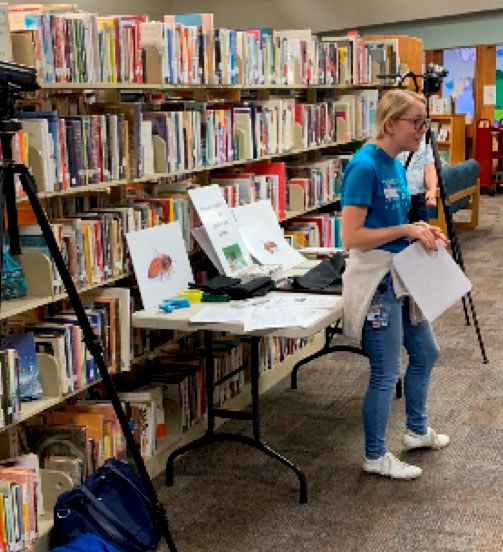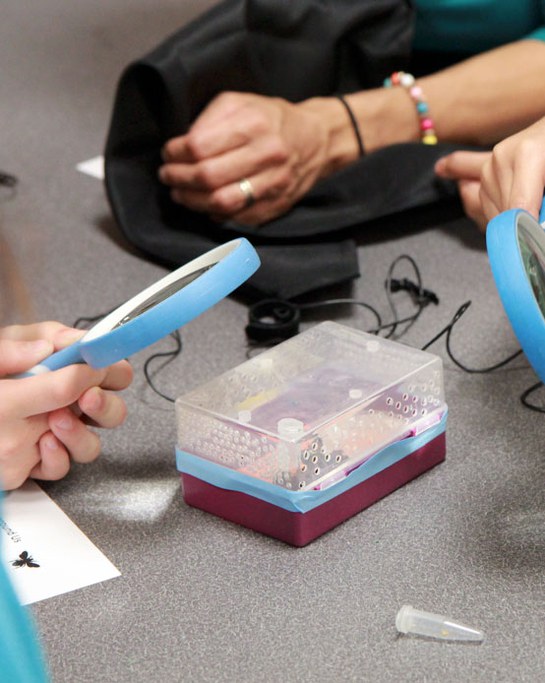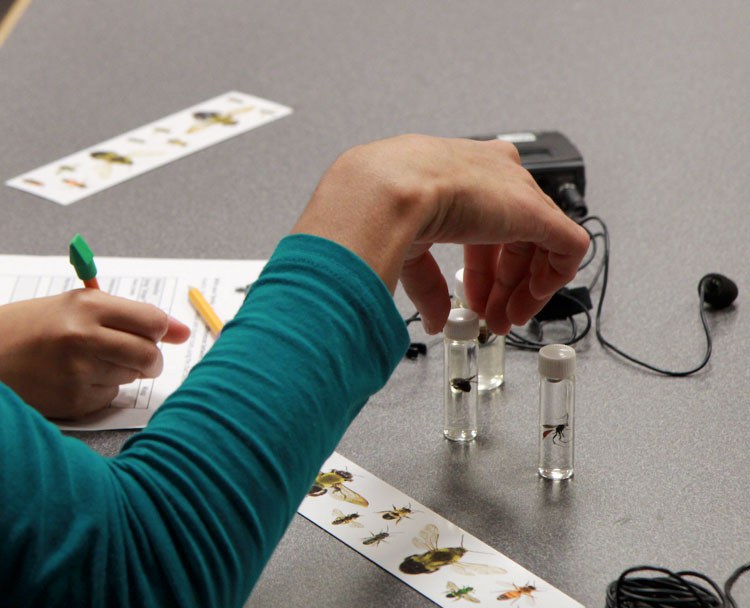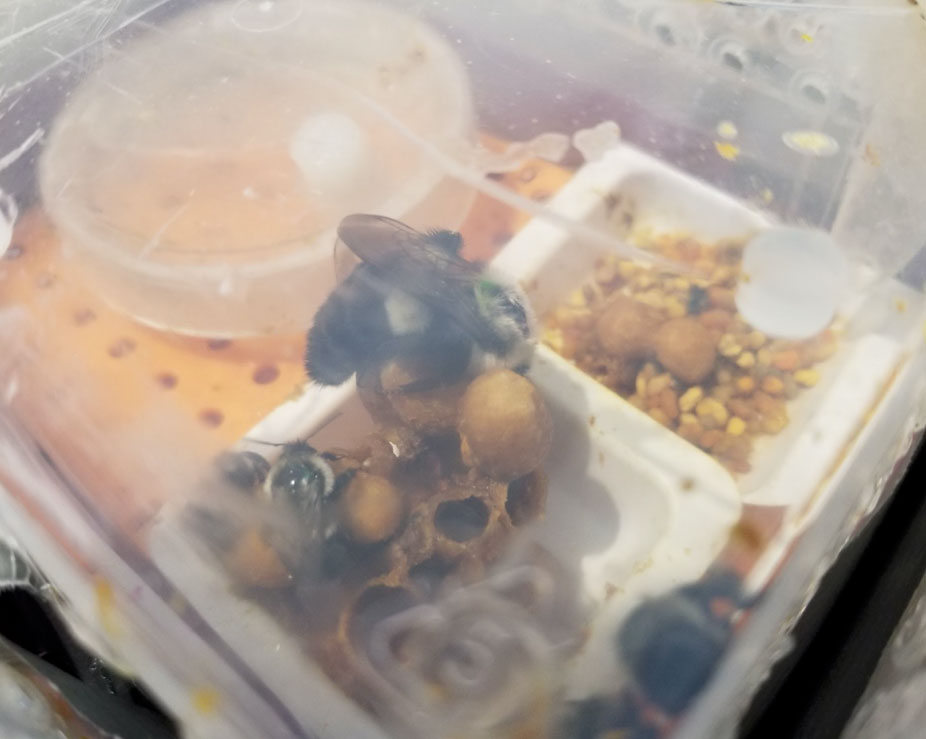Posted: October 25, 2019
Recently, bumble bees have been visiting libraries and museums around Pennsylvania. The bees have been helping families learn about the life sciences and how scientists study how bees and other animals live and are adapted to their environments.

Crone, a PhD candidate in the Grozinger lab, leading the bumble bee observation activity at Phillipsburg library.
Recently, bumble bees have been visiting libraries and museums around Pennsylvania. The bees have been helping families learn about the life sciences and how scientists study how bees and other animals live and are adapted to their environments.
Not only are families learning, but researchers from the Penn State College of Education's Learning, Design, and Technology Program are learning too. The goal of this project, led by Dr. Heather Toomey Zimmerman and Dr. Susan Land, is to understand how encouraging science-based conversations within families can enhance learning, retention, and interest in STEM fields.
"Bees are so fascinating, and they really get people interested in learning about the animals and plants in the world around them. With this project, the bees are also helping us learn about how we can better design our outreach programs to be engaging and educational" says Christina Grozinger, the director of Penn State's Center for Pollinator Research.
Zimmerman's team aims to learn more about how families can learn together through project-based learning, a process by which families explore a subject through hands-on activities. This style of learning is thought to be more engaging than traditional classroom lectures. Zimmerman's team analyzed audio and visual recordings from the workshop to understand how families interact when given science conversation prompts as they complete experiments and activities.

Families observing behaviors of different bee castes in miniature bumble bee colonies
The "Pollinators Around Us" workshop gave families the opportunity to study physical and behavioral adaptations in two separate experiments. In the first, families compared physical features between preserved honey bee, bumble bee, and parasitic wasp specimens to understand how physical adaptations help insects persist in their environments. Families then observed miniature bumble bee colonies to identify behavioral adaptations among different bee castes and understand why it is beneficial for bees to work together in a colony.
If you think this sounds fun, you're in luck! An additional goal of Zimmerman's is to provide libraries and museums in rural communities with project-based science curricula anyone can use free of cost. This content will be available online through Zimmerman's Augmented and Mobile Learning website (https://sites.psu.edu/augmentedlearning/) and the the Center for Pollinator Research website (https://ento.psu.edu/pollinators).This workshop is part of Zimmerman's larger STEM Pillars program, which also has workshops on engineering, water quality, meteorology, botany, and astronomy with local community experts.

Families comparing traits between preserved honey bee, bumble bee, and parasitic wasp specimens.
Thus far, the workshop has been held at Phillipsburg library, Tyrone library, and Shaver's Creek Environmental Center,with 28 children and adults participating. "We had so much fun working with these families! We hope to offer this workshop again, and develop additional workshop on pollinators and insects in the future" says Grozinger.
The researchers hope that this project will help families continue to explore the pollinators in their backyard, perhaps encourage some of the children to become scientists, and help Penn State researchers learn how to better communicate their joy and passion for their work with the broader public.
An up-close view of a miniature bumble bee colony.
The STEM Pillars program is funded by a grant from the Institute of Museum and Library Services, awarded to Zimmerman and Land. The Pollinators Around Us workshop was developed by Makaylee Crone, Rong Ma, and Christina Grozinger, with support from Katie Grills.


